Golden Years Adventurers
Tips for Traveling with Elderly Family Members

Seeing the world can be truly magical, and it’s even better when you experience it with those you love most. As you’re planning your travel, though, it’s important to think about those traveling companions and whether there are added accommodations you might need to make.
Planning travel for elderly people and people with special needs is our specialty, and we know how to make your trip go off without a hitch, so your loved ones feel safe and comfortable from the first mile to the last. Make your next trip smoother with these tips for traveling with elderly family members.
Pack Medications Wisely
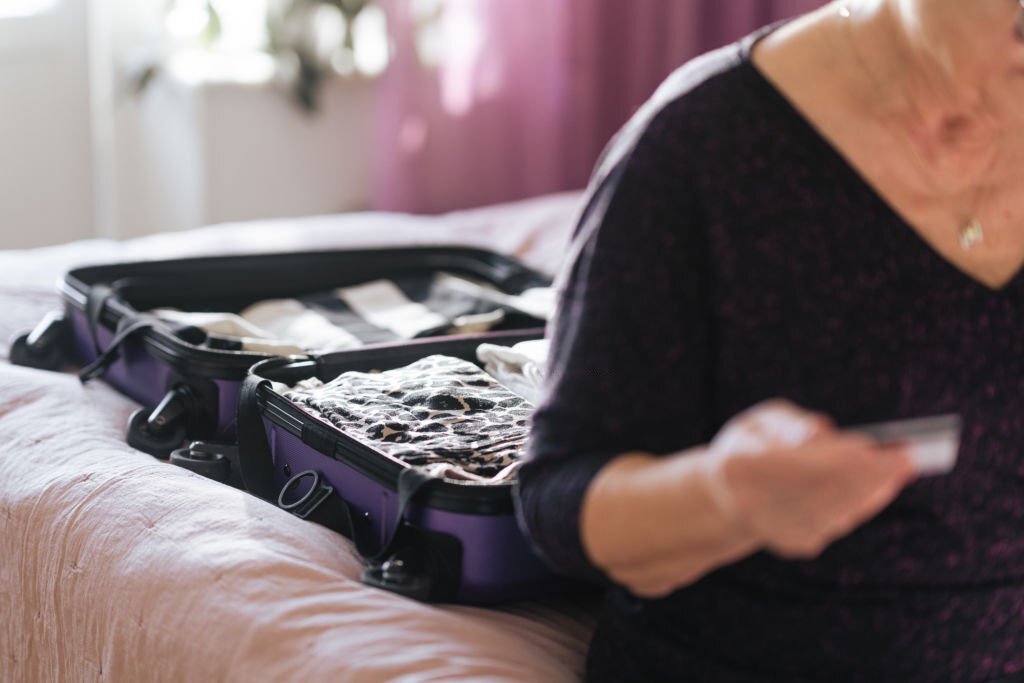
For older adults or anyone who takes a variety of medications, the best way to travel with these medications is to bring them all in their original, prescription-labeled bottles. TSA does not require that prescriptions be in their original bottles, but doing this will make luggage inspections easier and will allow you to avoid complications from the prescription laws that vary from state to state.
As an added bonus, medications are less likely to spill in the luggage if you have them in locking prescription bottles compared to a pill organizer. If your family member uses a weekly pill organizer, it’s best to bring it along and set it up after you get to your destination.
Consider Medical Devices or Implants and Airport Security
To be sure you can help your family member through airport security, make sure you know about any medical devices or implants they have, including a pacemaker, internal defibrillator, screws or other implants from surgeries, artificial joints, and so on.
You or your loved one will need to tell the TSA officer about these devices and implants before going through the metal detector. For a pacemaker, TSA will have an alternative to a walk-through metal detector. For other implants, you want to alert them that the devices could set off the detector.
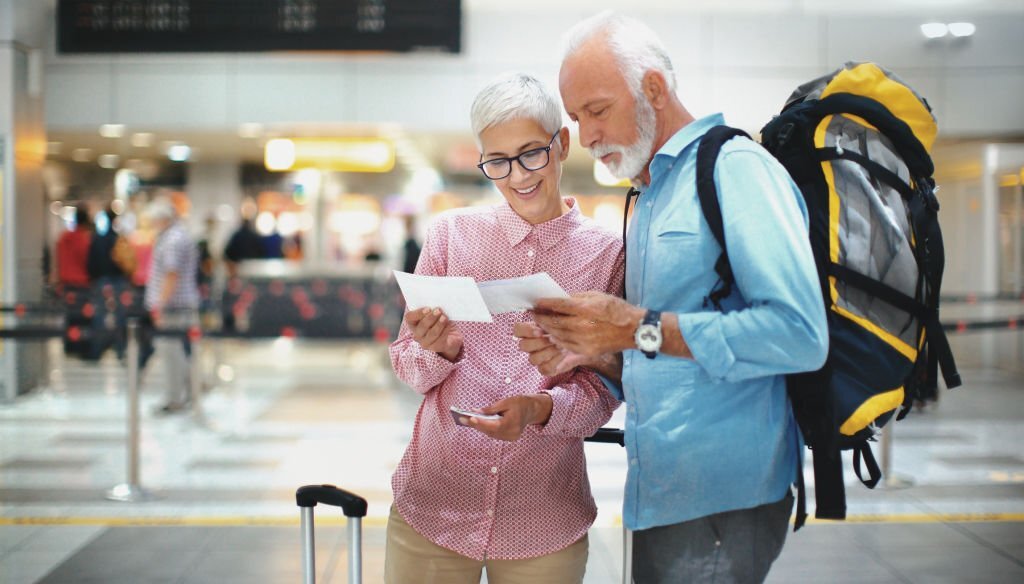
Get Wheelchair Assistance at the Airport
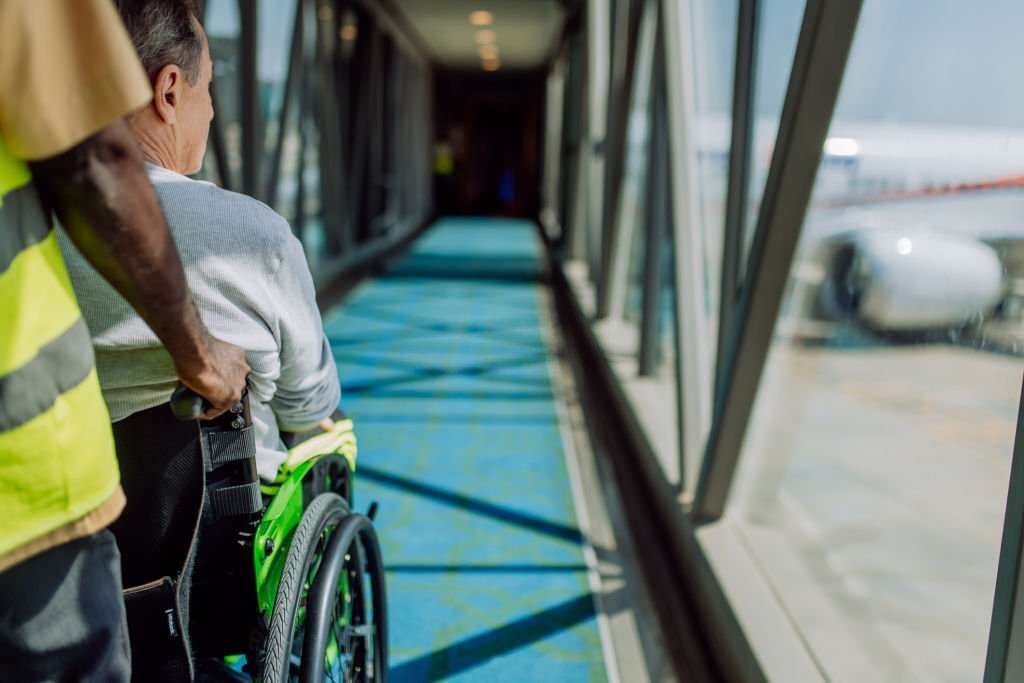
A wheelchair can be a game-changer for elderly travelers. Airports present a significant fall risk for older adults: the floors can be slippery, there’s a lot of walking with few opportunities to sit and rest so it’s easy to get tired, and there’s a lot of foot traffic including energetic children and people who are running to catch flights. A wheelchair can help your loved one get to their gate more safely and efficiently, even if they don’t need a wheelchair at home.
Wheelchair service is provided not by the airport but by the airline. It’s best to contact the airline at least 48 hours before the flight to make arrangements for wheelchair service. You can also request it at the airline’s check-in desk.
Be Generous with Your Planning
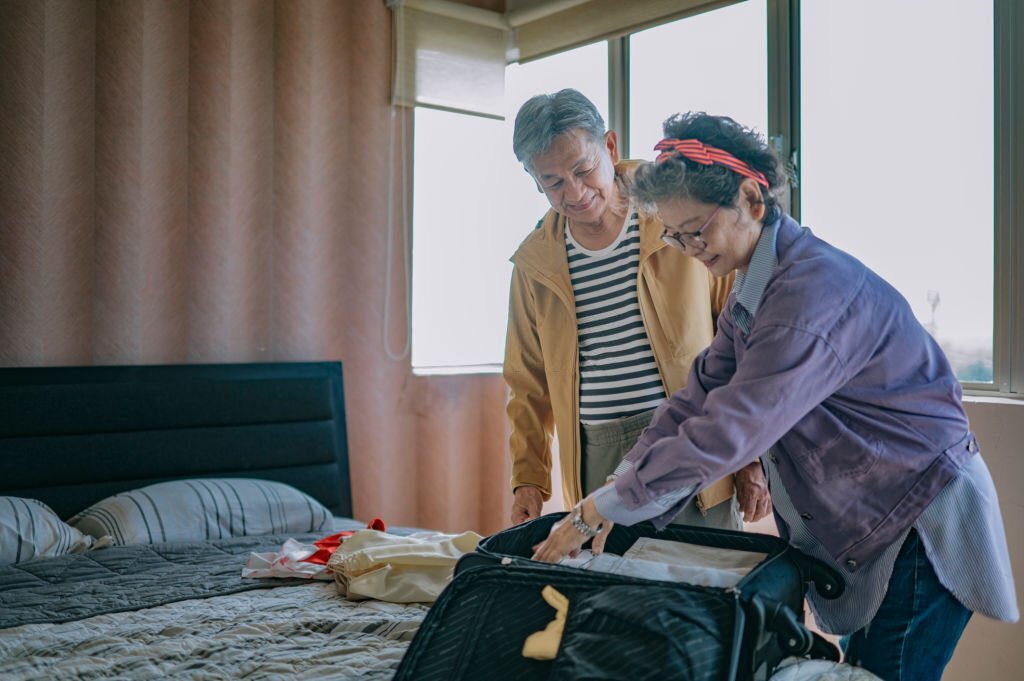
When you’re traveling with an elderly family member, avoid booking too tight of a time schedule. Allow plenty of time for getting around, taking more bathroom breaks, and so on. You also want to be sure you can get to your gate early enough to pre-board.
This can mean getting to the airport earlier than you otherwise would and, if you have connecting flights, avoiding flights that have a layover of less than an hour. Expect drives to take longer as well, including extra stops for your loved one to take a break and extra time for them to safely and comfortably get in and out of the vehicle.
Check Bags if Possible
As you likely know, most airlines allow passengers to bring a carry-on suitcase and an extra item like a purse without paying extra fees. However, carry-on luggage can be a burden on older adults. It gives them more to deal with while getting through the airport and while going through security. It may be easier to check their bag instead and make sure that their purse or backpack has everything they will need immediately, like their medications.
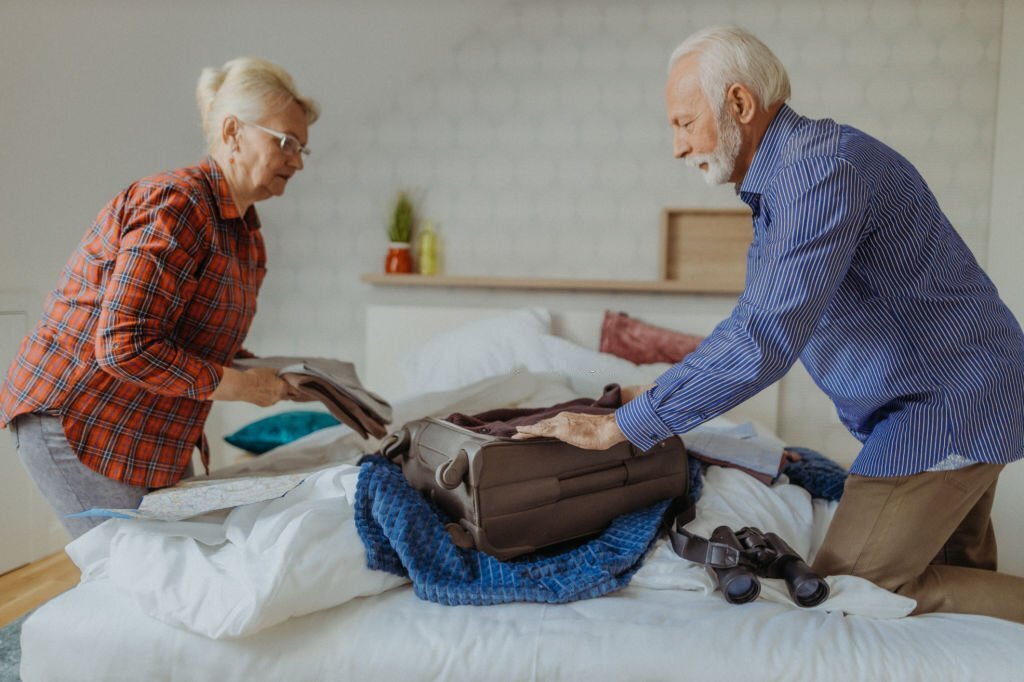
Plan in Advance for Accessible Hotels

A hotel that is disability-friendly is crucial for elderly travelers even if they don’t use a wheelchair or a walker. The fewer stairs to climb and potentially trip over, the better, and it’s always safer to have rails in the shower and other areas too.
The key is planning ahead. Many hotel booking sites let you filter by accessibility so you can be sure to find hotels with handicap-accessible rooms. Book an accessible room in advance, because if you wait until you get to the hotel, they might only have a few accessible rooms and those might all be in use. To be sure you’re getting what you need, you can call the hotel directly and ask questions about their disability services, what precautions are in their accessible rooms, and so on.
Keep in mind that the terminology will be different from country to country – if you ask about an ADA-compliant room, for instance, hoteliers in other countries won’t understand, and they may not understand if you only say “accessible” too. Do some research to find out the terminology in your destination country.
Have a Back-Up Plan for Medications

Before your trip, talk to your loved one about their medications and make sure they have enough for the entire trip or that they get any refills they need in advance. As a backup plan, though, they should ask their doctors for paper prescriptions in case they need a refill while they are abroad.
It’s important to note that the laws and logistics of prescriptions are different from country to country. Some medications that are legal in the US are illegal in certain other countries, so be sure to check for each medication your loved one takes. In many cases, the website for the US embassy of your destination country will have helpful information about medications and about how to get trusted refills in that country.
Planning the Trip of a Lifetime for Your Elderly Family Members

There’s simply no match for the outstanding memories you can make while experiencing a new place with people you love, and the extra planning is well worth the effort. If you want to make life easier for yourself and your loved one, we’re here to help. Our agency specializes in unique travel situations for families. Contact our agency to learn how we can make all the essential arrangements for your family member.
